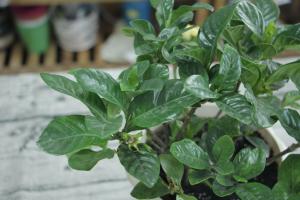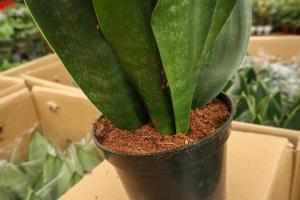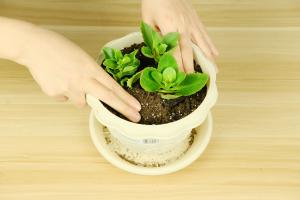Why Has My Tomato Plant Stopped Growing?
Tomato plants are a popular choice for gardeners due to their delicious fruit, versatility in the kitchen, and relatively easy maintenance. However, it can be frustrating when your plant seems to have stalled in growth. You may be left wondering, why has my tomato plant stopped growing? Here are some potential reasons:
Lack of Water
Tomato plants are thirsty, and a lack of water can severely stunt their growth. Make sure you're watering your plants regularly, particularly during hot weather or periods of drought. Check the soil frequently, and water deeply when necessary to ensure that the roots are getting enough moisture. Inconsistent watering can lead to issues like blossom end rot or cracking, which can further impact plant growth.
Poor Soil Quality
Tomato plants require nutrient-rich soil to thrive and produce fruit. Without adequate nutrients, your plant may struggle to grow. Make sure you're amending your soil with compost, adding fertilizer, or using a high-quality potting mix if you're growing tomatoes in containers. Consider getting a soil test to determine if you need to adjust the pH levels or supplement with specific nutrients.
Lack of Sunlight
Tomato plants require plenty of sunlight to grow, typically a minimum of six hours per day. Without enough sunlight, your plant may not produce enough energy to fuel growth. Make sure your tomato plant is in a location with plenty of direct sunlight. If you're growing indoors, consider using grow lights to mimic natural sunlight.
Pests and Diseases
Tomato plants are susceptible to a range of pests and diseases, including aphids, blight, and spider mites. These issues can cause damage to the plant, affecting growth, yield, and overall health. Regularly inspect your tomato plant for signs of pests or diseases, and take action quickly to prevent further damage. Consider using organic pest control methods, like neem oil or insecticidal soap, to avoid harmful chemicals.
Overcrowding
If you're growing numerous tomato plants close together or overcrowding them in a container, they may struggle to grow. Tomato plants require space to spread their roots and grow tall. Make sure you're giving your plants enough room to grow by spacing them out in the garden, or transplanting them to bigger containers if they're struggling to grow.
In Conclusion
If your tomato plant has stopped growing, don't give up on it just yet. There are various reasons why your plant may be stunted, but most are fixable with the right approach. By addressing issues like water, soil quality, sunlight, pests and diseases, and overcrowding, you can set your tomato plant up for success and enjoy a bountiful harvest in no time.

 how many times do yo...
how many times do yo... how many planted tre...
how many planted tre... how many pine trees ...
how many pine trees ... how many pecan trees...
how many pecan trees... how many plants comp...
how many plants comp... how many plants can ...
how many plants can ... how many plants and ...
how many plants and ... how many pepper plan...
how many pepper plan...
































